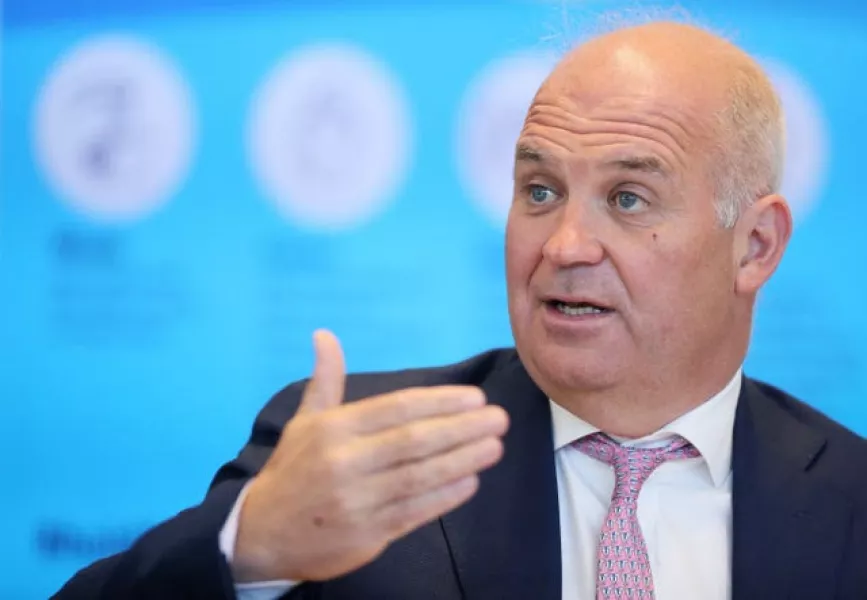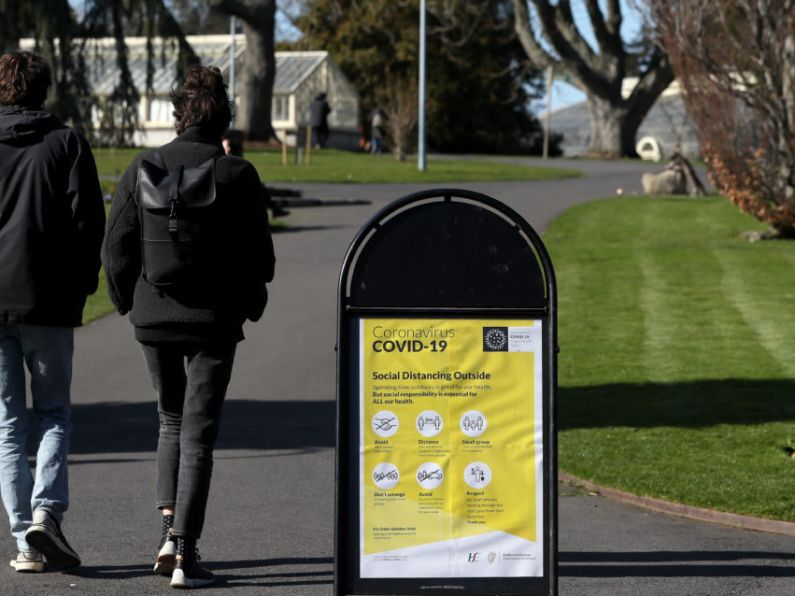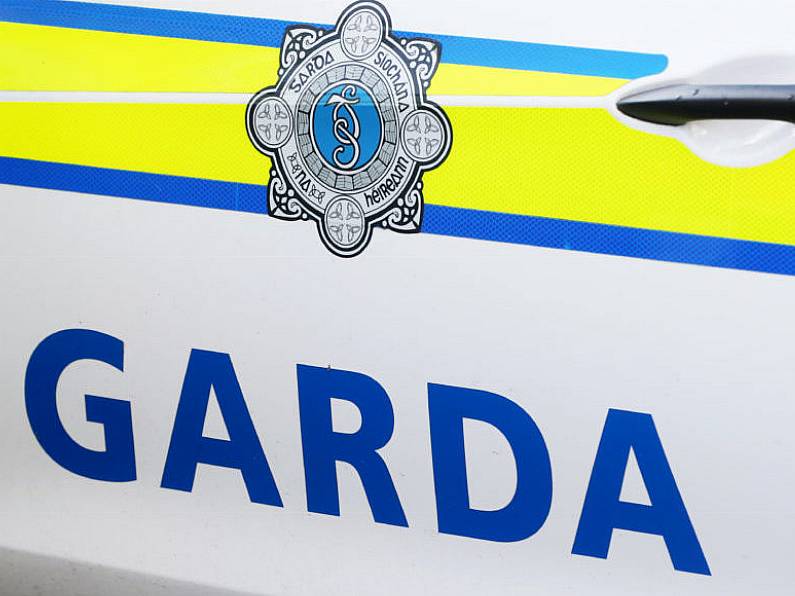Additional reporting by Cate McCurry (PA)
The chief medical officer (CMO) expects Covid close contact rules could be relaxed for schoolchildren in the near future.
Currently, all school-children who are close contacts of a confirmed virus case must self-isolate.
He confirmed there are currently 12,000 schoolchildren self-isolating around the country.
Recent data shows that up to last Saturday, there were 40 outbreaks in schools and 191 linked cases.
Dr Holohan said he hopes changes to self-isolation rules can be made soon when health experts have had time to monitor the impact of schools reopening.
This may be changed so those without symptoms would not have to isolate.
Speaking at the Oireachtas health committee, Tony Holohan says he hopes new advice will be issued soon.
"We're not that far away from being able to have that certainty, if it's there.
"And we remain hopeful that we will be in a position to change that for the near-term, not just for schoolchildren, but in terms of testing, contact tracing, and the wider public health management for society as a whole."
Holohan has also said he does not believe significant restrictions will be reimposed based on current health data.
The Chief Medical Officer said he is “optimistic” about the trajectory of the disease, and said the country is on course to meet criteria that will allow the vast majority of restrictions to be lifted next month.
Public health experts set out a series of criteria to Government that should be met before the country can move out of restrictions on October 22nd.
They include a target of vaccinating 90 per cent of the population over the age of 16, and passing the peak of the Delta variant.
CMO confirms to me that while we cannot rule out the introduction of some public health measures in the future we are on course for the lifting of restrictions on 22nd October & that he does not anticipate a return to more significant restrictions. @rtenews @sinnfeinireland
— David Cullinane T.D. (@davidcullinane) September 15, 2021
Appearing before the Oireachtas health committee, Dr Holohan said the National Public Health Emergency Team (Nphet) can “never absolutely” rule out further measures to curb the spread of Covid-19.
“We don’t think we’re going to be in a situation where some of the significant restrictions that had to be imposed in the Irish population are likely to be necessary on the basis of anything that we see in front of us right now,” he added.
“In broad terms we are optimistic about the trajectory of the disease at this point in time.
“The likelihood that over the course of the coming weeks, the important criteria that we set out in our last advice to Government, that needs to be satisfied before we think we’re able to move on from the range of measures that are still in place being eased, we think we are a short number of weeks away from that.
“We don’t see anything at this point in time emerging in the international scene, globally, by way of concern about a new variant.”
Every COVID-19 vaccine makes a difference, helping to reduce the amount of severe illness caused by #COVID19.
If you haven't had your vaccine yet, check with your pharmacist or GP or register online. Because every vaccine makes a difference #ForUsAll
➡ https://t.co/Zy23PZjexC pic.twitter.com/5wlw6P2Z5m
— HSE Ireland (@HSELive) September 15, 2021
Professor Philip Nolan, who chairs the Nphet Epidemiological Modelling Advisory Group, said there had been 100,000 cases detected between June 20th and Tuesday (September 14th).
He said the country is slightly ahead of Nphet’s optimistic assumption of how the disease would progress.
“If we take the most optimistic scenario we’re currently looking at, which is not unreasonable, we’re just past the peak of infection and case numbers should decline from here on in, and that may be happening, given the data we have now,” Prof Nolan told the committee.
The committee also heard that high rates of infection are leading to outbreaks in nursing homes.
Dr Holohan said this was “the force of infection”.

He warned that as vaccines are not 100 per cent effective, there will always be some people vulnerable to the disease.
He also said that although there are high levels of vaccination among staff at nursing homes, there is an issue around agency staff.
“We do believe that there has been a challenge in some nursing homes in maintaining high levels of staff, particularly perhaps among those people who work in nursing homes, but who actually come from agencies,” he added.
He said the HSE is trying to avoid deploying staff who are not fully vaccinated in nursing homes.
Data shows that from June 27 to September 11, there were seven outbreaks in community hospitals and long stay units and 51 outbreaks in nursing homes.
Across those outbreaks, there were 896 cases detected, and 31 people admitted to hospital, with 31 dying from the disease.
Prof Karina Butler, chairwoman of the National Immunisation Advisory Committee (Niac), said that people living in nursing homes and those over the age of 80 will be offered a booster jab.
She said recent data from Israel and Public Health England shows that their immunity wanes more quickly.
“Although we see a creep up in the amount of infections, the impact has been very, very different in the vaccinated population versus the unvaccinated,” Prof Butler said.
“So for the elderly who are fully vaccinated, and most of them are, when they get infected, most of them have a milder disease than they would have had, say, last January.”
She said plans to roll out booster jabs are being put in place by the HSE.
Prof Butler also said she hopes all staff in nursing homes are vaccinated, but the approach of mandatory vaccination has “never been a good thing” and has “always been a last resort”.






